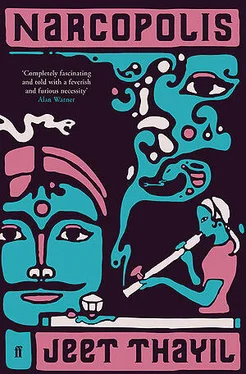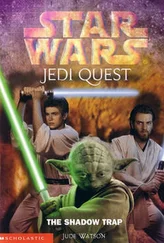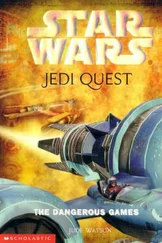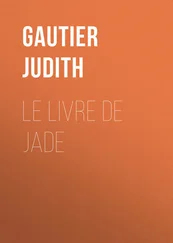*
He took a cab to Rajesh Khanna Park and kept it waiting while he went into the Tamil slum known as Murugan Chawl and bought a five-gram pack. The woman who sold him the smack had a baby at her breast and he sat on the floor and snorted a quick line off his wrist and then he made a joint. His ass immediately tightened and he felt better, or better than better, best, infinitely best. The woman was telling him about her brother who used to run the family’s heroin trade but had died from TB and drugs. Two of her brothers-in-law were dead from mysterious illnesses that she attributed to garad heroin, and her husband, also a garaduli, had fallen off a train earlier that year, leaving her with two kids, etc. etc. etc. The lament slid from his head like rain and he stared at her breasts, or breast, since only the single one was visible, one pathetic tit being suckled by the vampire baby leech that was fattening as he watched. It was less than a year old and its greasy black hair was plastered to its forehead and it had the face of an old sow, and its future was written on its forehead: fatherless childhood, adolescence of petty crime, garad or alcohol in his late teens, more crime, illness, the usual ending. Why did you have another baby? he asked the woman. You have no money, your husband was a garaduli, and you already have one mouth to feed, why another? The woman’s face was oily and her oily black hair was tied with a rubber band. She took the baby from her breast and held it to him. Hold him and you’ll know, she said. He saw a drop of off-white milk on her black nipple. She smiled shyly and pulled the blouse down to cover herself and only then did he look at the thing in his hands. When the baby’s eyes met his, it began to cry. He wanted to shake its misshapen dwarf hand, because the reaction was the first sign of intelligence he’d seen all day. He held it away from his body and examined it, the colour, untouchable, and the smell, ripe, a nauseating mix of talcum powder and Parachute coconut oil. He wanted to take it with him, but how? And what would be a fitting reward to the mother in lieu of her blighted offspring, how many rupees, a thousand, two? Something of what he was feeling must have communicated itself to the woman by a kind of aboriginal voodoo. Give it to me, she said. Give, give. The baby was crying in earnest now, its mouth wide and its eyes closed tight, and he was impressed by the amount of noise it produced. He knew the mother was moments away from shouting for help and then, in an instant, the male members of her criminal clan would be at the door. He gave the baby back and stepped out of the room and walked along the open gutter to the street. In each of the hovels he passed a woman was cooking while her husband drank country liquor and their children puked or pissed in the approximate vicinity of the gutter. He negotiated small piles of watery shit and imagined a great firebomb that would end the poverty and desolation of Murugan Chawl, a big beautiful explosion that would engulf the entire slum and blow its inhabitants straight into the next world. Smiling now, he felt ready to take on the fuckers at the rehab, but first he had to make one last stop and he’d forgotten all about the cabbie, who was still waiting, pacing near his fucked-up piece-of-kaka Fiat. Chalo, he told the man, who got in the car without whining, and he directed him to Bandra East, to the slum near the station, so poor it didn’t have a name, where he picked up a gram of Charlie and treated himself to a quick equalizing line — or three.
*
Soporo said he wanted to make a confession. He took a few steps around the stage, distractedly, like a sick man, then he picked up the bottle and took another careful sip. Instead of a confession he made a joke. He said when he looked around the room at the sinners and the saints, the young and the old, he knew that as far as confessions went his was no big one. But here it is anyway, he said, because after all I’m in the right place for it. Then he explained that he was an uneducated man, or, if not exactly uneducated, certainly unschooled. When he was growing up in China he had every opportunity to study but he chose instead to work and eventually came to India with the intention of solving the mystery of what had happened during the last days of his ancestor, a Muslim Chinese admiral who died here. Instead of solving one problem he found another, he became an addict and he got lost in Bombay. But even in the lost years, or decades, he was reading. What did he read? Whatever came his way, he was unsystematic. He had no discipline and he could afford not to, after all he was not aiming to be a scholar. He read because it gave him instant gratification in a way nothing else did, and, as was the case with all addicts, gratification was the important thing. He liked history, travel, anthropology, cookbooks (which he read in the same way he read other books, for pleasure): he liked books with specialized information. At the moment, he was reading about a thirteenth-century poet who invented a particular poetic form, a form that was so difficult, so fiendish, that subsequent poets rarely attempted more than one example in their entire lifetimes, and almost no one wrote three or more, and this was still the case some seven hundred years after it was invented. The poem consisted of five stanzas of twelve lines each and a last stanza of five lines, with a strict, tremendously intricate rhyming scheme in which the rhyme wasn’t the sound of a word’s ending but the word in its entirety. In each stanza the rhyme words were repeated a certain number of times in a pattern that varied (though even the variations were strict) over the course of the poem. And though there were sixty-five lines there were only five rhyme words, imagine, which meant the poet had to be as inventive as possible beneath the strict framework of the form. For example, said Soporo, writing with his finger on an imaginary blackboard, this is how the rhymes occur in the first stanza:
a
b
a
a
c
a
a
d
d
a
e
e.
In the next stanza the e rhyme takes first place:
e
a
e
e
b
e
e
c
c
e
d
d.
And in the third stanza the d rhyme takes first place and so on until the final stanza when each of the words occurs once, for the last time. The arrangement and rearrangement of rhyme words allows each to be first among equals, even if it’s for one stanza only. It’s as ingenious a form as any you can name and certainly more demanding than most. Here, Soporo stopped and raised both hands in the air as if he was placating an angry mob. He said, Okay, okay, bear with me for a moment. The point is this: why did the poet invent such a difficult form? Did he have nothing better to do? Was he some kind of curmudgeon who wanted to make a difficult art more difficult still? Or was he simply perverse, which he must have been to some extent, after all he was a poet, and a good one. When asked, the poet said at first that he didn’t belong to those who may be asked after their whys. Then he said he wanted to make a form that was akin to wrapping himself in chains, because within the prison of the form it was pure exhilaration and freedom to write such a poem. So, there’s freedom and there’s freedom. Now, said Soporo, here’s my confession. I may take heroin again. I may do it tonight, when you’ve all gone home and I’m alone in my room, reading a book and drinking tea, or not even reading, just looking out the window at the street and the cars going by. I don’t smoke, I don’t drink, I don’t take drugs and I live alone. I look at the cars that are full of people and I look at my hands and wonder what to do with them and it’s a possibility, it’s always a possibility that I’ll go out and catch a cab and take it to a place I know. I may do it and I may not. Either way, I’m free to make a choice because it affects no one else in the world except myself, and that, friends, is the happy and unadorned truth of the matter.
Читать дальше












